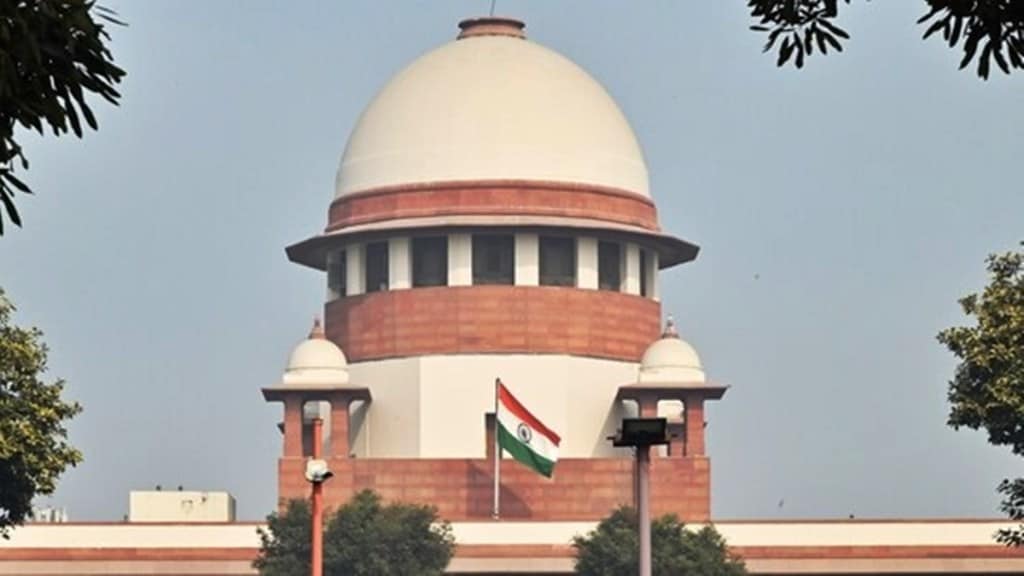Describing life and liberty as “extremely important,” the Supreme Court on Tuesday questioned the timing of Delhi Chief Minister Arvind Kejriwal’s arrest by the Enforcement Directorate in connection to the excise policy-related money laundering case. Kejriwal was arrested just before the Lok Sabha elections began.
A division of Justices Sanjiv Khanna and Dipankar Datta, during the hearing of Kejriwal’s plea challenging his arrest for the second consecutive day, raised several questions to Additional Solicitor General S V Raju, representing the ED, and sought his response by Friday.
Also Read:‘Why did you not move bail plea’: Supreme Court questions Arvind Kejriwal on challenging his arrest
The bench stressed the importance of “Life and liberty are exceedingly important. You can’t deny that,” as they questioned Raju, stating, “the last question is with regard to the timing of the arrest, which they have pointed out, the timing of the arrest, soon before the general elections.”
They also noted the long gap between the start of the case and the arrest, citing the Prevention of Money Laundering Act’s 365-day limit. The top court will likely continue hearing Kejriwal’s plea on Friday, with different judge combinations starting Wednesday.
Also Read:‘Two women paraded naked in Manipur approached police Gypsy but…’: What CBI chargesheet says
It said, “Mr. Raju, we have some questions, which we would like you to answer, when you make your submissions. First is without there being any adjudicatory proceedings, can the ED initiate a criminal proceedings in view of several judgements of this court on PMLA.”
The bench noted there have been no attachment proceedings so far in this case, and if there are any, the ED must demonstrate how the petitioner (Kejriwal) is linked to them.
Also Read:‘Mangoes, sweets and aloo puri’: Delhi court questions Arvind Kejriwal’s home received food amid health concerns
Justice Khanna mentioned the divided verdict on the bail plea of former deputy chief minister Manish Sisodia in the excise policy scam case, stating that one part favored Sisodia and the other went against him. “You (Raju) have to tell us which part of Sisodia verdict does the petitioner (Kejriwal) case lie,” the bench remarked.
Justice Khanna highlighted another significant issue regarding the ED’s authority to make arrests, which has been the primary reason for Kejriwal’s frequent appeals to the court.He explained that although not explicitly stated, it’s apparent why Kejriwal keeps challenging the remand. They believe that according to section 19 of the PMLA, the burden lies with the prosecution, not the accused.
Justice Khanna further clarified that under section 19 of the PMLA, the threshold for arrest is quite high, while the accused bears the burden when seeking bail under section 45 of the Act.Section 19 of the PMLA allows the ED to arrest individuals if there’s credible evidence suggesting they’ve committed an offense punishable by law.
Under section 45 of the PMLA, there are two conditions for granting bail: the prosecutor must have a chance to oppose the bail plea, and the court must be convinced that there are reasonable grounds to believe the accused is not guilty and won’t commit any offenses while on bail.
On Monday, The Supreme Court questioned Kejriwal’s failure to appear before the Enforcement Directorate (ED) despite multiple summonses for statement recording. It raised the possibility of Kejriwal challenging his arrest in a money laundering case linked to the excise policy scam due to the absence of his version being recorded.
Kejriwal has been in judicial custody at Tihar jail since his arrest on March 21 in connection with the case. The Supreme Court issued a notice to the ED on April 15, seeking its response to Kejriwal’s plea. Earlier, on April 9, the High Court upheld Kejriwal’s arrest, stating that it was lawful and that the ED had few options left after he repeatedly ignored summonses and declined to participate in the investigation.
The case revolves around alleged corruption and money laundering concerning the formulation and execution of the Delhi government’s now-defunct excise policy for 2021-22.

